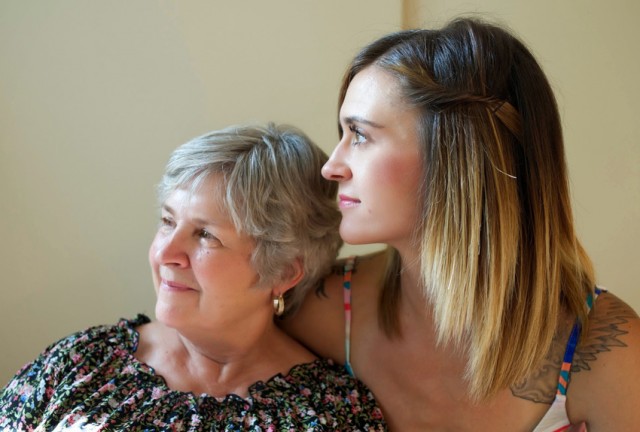Accessibility Tools
- Content scaling 100%
- Font size 100%
- Line height 100%
- Letter spacing 100%
The SANE Blog
Bipolar disorder causes people to experience intense mood swings – from manic highs to depressive lows. Not everyone experiences bipolar the same way, however, it is estimated that at least 75 per cent of people diagnosed with bipolar disorder will relapse, even when following a treatment plan.
In bipolar disorder, a relapse is defined as the return of depression or a manic or hypomanic episode after a period of wellness. Sometimes it is possible to predict a relapse; often it is not. For many, the onset of a relapse seems to come out of the blue.
Experiencing a sense of helplessness can be a common experience for people supporting a loved one with a mental illness. It's natural to be alarmed by what's happening to your loved one and concerned about your capacity to support them.
This sense of helplessness can be exacerbated if you feel excluded from your loved one's recovery journey or unable to connect with them. Mental illness – no matter how severe or mild – can play havoc with a person's thinking, feelings and behaviour. It can cause distress and difficulty in functioning, and lead people to distance or detach themselves from their support network.
'I never considered myself to be a carer until another parent of a young person with a mental illness told me that I was eligible for a carer's allowance.
'At that moment I realised that what I was doing for my son was beyond normal mothering. Despite not pursuing the carer's allowance, I felt good about the fact that my efforts were worthy of recognition.'
As a mother and carer of a son with mental illness, I've spent years traversing the system seeking care and support.
Over the years I've tackled education, health care, family and community services, human resources and at times the legal system.
Supporting someone living with a mental illness can be a stressful experience. And it certainly doesn't come with an instruction manual.
For some carers, supporting someone means endless internal dialogue about the health and wellbeing of their loved one. Did they take their medication? Are they out of bed? Have they eaten? Showered? Where are they right now?
The staff who answer the phones at mental health hotlines are at the coalface of the industry, working directly to help people in crisis.
SANE followed a typical day in our Help Centre, which offers 12,000 hours of free specialist support every year for people affected by complex mental illness.
When my son first displayed symptoms I felt a desperate need to try and help him.
Part of that need was born out of my own feelings of guilt. The remainder was fuelled my desire to alleviate his psychological pain.
Over the course of my son's diagnosis, there has been a huge shift in me. Initially I could not accept that nothing would help . I embarked upon a frenetic search for that illusive fix. I thought, 'Where did I go wrong? Why can't anyone help him?'
Every relationship has its ups and downs, but when one partner is diagnosed with a mental illness, it can add an extra pressure. When your carer is also your spouse, it is important for both partners to look after themselves and each other. Todd and Natalie have worked together to manage Todd's mental illness since he was first diagnosed six years ago.
When a loved one is diagnosed with a mental illness, the automatic concern is for their wellbeing, treatment and recovery. This is a normal and natural response.
Yet many people fail to realise the process can change the family dynamic. Schedules and priorities may change, with time required for appointments, treatment and support.




























